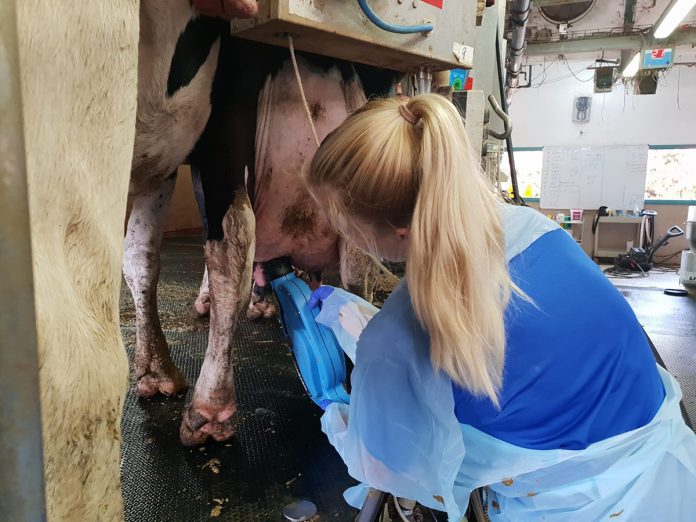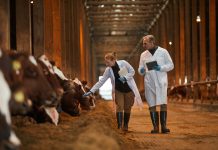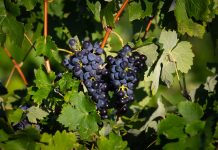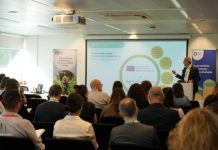Gil Hakim, Chairman & CEO of Armenta describes the exciting Dairy Herd Health Revolution, stressing the need for animal welfare and sustainability and highlights Acoustic Pulse Technology
In an era where growing demand for milk and dairy products requires high-performing cows with the rising importance of environmental protection, a transformation in how animal health is carried out is needed more than ever before. Animal health affects animal welfare, influences human health, impacts the environment, and creates a significant economic burden for farmers.
Armenta, an Agtech start-up based in Ra’anana, Israel, is addressing this challenge with a single and simple solution. The company developed Acoustic Pulse Technology (APT) to create a scenario that will benefit all parties: Improved animal welfare and health, added health benefits for customers with a lower environmental impact by reducing the use of antibiotics, as well as lifting the economic burden from the farmers.
Mastitis affects both: Animal health and farmer’s economy
The company focuses on combating the most pressing disease affecting dairy farming as the global costs of bovine mastitis can reach billions of Euros each year, being the main contributor to dairy farm losses with €3.8 billion in Europe and the U.S. alone. Mastitis, an inflammation of the mammary gland and udder tissue, is found in 30% to 40% of dairy cows at present. As a result, less milk is yielded as the cows’ performance drops and milk is discarded when antibiotics are used. Also, milk quality is also impaired by changes in milk components and the resulting hygienic deficits.
Mastitis can be defined as clinical or sub-clinical. With subclinical mastitis, the daily loss of milk yield associated with it often goes unnoticed by the farmer as it can occur at levels slightly below the expected lactation curve while the cow shows no visible symptoms. Losses accumulate over the entire lactation period, which leads to high opportunity costs. Clinical mastitis shows visible symptoms such as swelling and heat of the udder, as well as a flaky and watery appearance of the milk, causing the cow pain and discomfort and direct milk loss, as it cannot be used. However, the most significant losses are caused by forced culling of the cows: replacement and rearing costs are in fact high. Total losses in the EU, including milk loss from clinical and sub-clinical mastitis and culling can reach to around €400 per case, which account for almost 30% of the net yearly earnings from each cow of an average farm.
A single, simple solution: From human care to cattle care
APT is a treatment widely used to accelerate recovery by generating new blood vessels, to reduce inflammation and improve tissue function, along with other beneficial long-term effects. The history of this method is well known in the medical field, but few people are familiar with its application in other industries. Armenta developed a disruptive, proprietary device based on APT to treat bovine mastitis. The first and only non-hormonal and non-antibiotic treatment for that matter. It combines an acoustic pulse generator device and a special applicator suited for the cow’s udder.
The non-invasive approach stimulates natural biological mechanisms that cure both infection and inflammation and permanently improve the function of udder tissue. It can be implemented on farms to treat dairy cows swiftly, comfortably, and cost-effectively by the farmer alone. The device is easy-to-use and handy, providing comprehensive mastitis treatment in just three minutes (per treatment) with excellent results.
Proven satisfactory outcomes
Following several trials on dairy farms in more than 12 countries around the world treating more than 2,000 cows, a success rate of >70% recovery of the infected quarter has been established. In addition, farmers can expect a >10% increase in milk yield, with >50% bacterial elimination and >90% reduction in somatic cell counts. Also observed, that the culling rates of infected cows will be lowered by >80%, leading to a measurable and rapid improvement in farm profitability. A great advantage of the treatment is also its durability as the treatment triggers the body’s own healing mechanisms recovering the function of the udder. Farmers will be able to increase their profitability by at least 25% and cut losses by around €300 per case.
What about antibiotics?
Conventional treatments for mastitis relying on the use of antibiotics, with close to 50% antibiotics used in food-producing animals, endangering the health of the public by fostering Antimicrobial Resistance (AMR), causing 33,000 deaths in the EU annually. Antibiotics in dairy cows are used for treatment, applied to 16% of all lactating dairy cows for clinical mastitis alone. However, the greatest contribution of antibiotics lies in their prophylactic use, received by nearly all dairy cows.
Beyond the risk to humans, antibiotics also weaken cows’ immune systems, making them more susceptible to repeated infections and thus affecting the overall welfare of the animals and their ability to produce milk in quantities profitable enough for the farmer to keep the cow in the herd. Consequently, the implementation of antimicrobial treatments to address bovine mastitis is becoming an increasing burden, undermining the profitability and sustainability of farms. Ultimately, the risks to human health are leading to global restrictions. The use of APT will allow the farmer to significantly reduce the use of antibiotics as actual treatment and eliminate the need for antibiotics as a preventive measure.
Horizon 2020 and future prospects
The European Union’s “Horizon 2020” research and innovation programme has granted funding to Armenta approach, confirming that the company is on the right track and that its vision to revolutionise herd health management should become a standard in every farm.
At Armenta, we are committed to consistent growth and developing additional therapies for the treatment of other inflammatory diseases affecting herd health and farm profitability while leading efforts to avoid the spread of AMR, especially during the dry period. Armenta will additionally develop broader applications to treat reproductive disorders and lameness in cattle and to improve herd health management in other livestock.
Please note: This is a commercial profile











